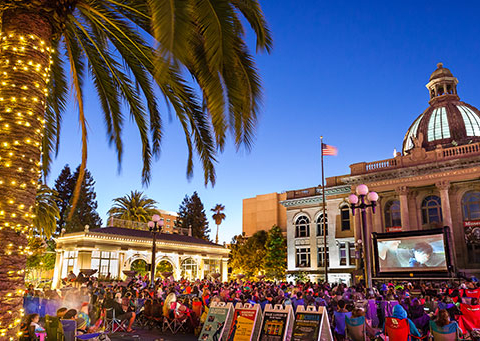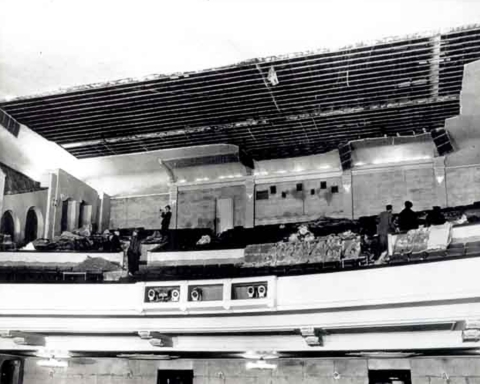A huge number of ballots already have been turned into San Mateo County elections offices, signaling what could be an historic voter turnout when all the ballots are counted from next Tuesday’s general election.
As of 5 p.m. on Tuesday, 93,470 voters had voted – 92,190 by mail and 1,280 in person at one of the polling places throughout the county, according to county elections chief Mark Church.
The tally of returned ballots, posted with a week to go before the close of the polls, nearly equals the 97,447 ballots cast in total in the last equivalent election, the 2014 gubernatorial ballot.
This comes as no surprise, of course.
The national, statewide and local issues at stake in this election have created an uncommonly high interest in the 2018 campaign year. A national fervor has been matched by a passionate interest in local city council races, more than a dozen of which are on this ballot since the Peninsula moved its elections to coincide with even-year statewide elections.
“I’ve never seen an electorate as energized as they are right now. It’s no longer just about the national dialogue,” said Assemblyman Kevin Mullin, a prime mover behind the vote-by-mail legislation. “I have not seen in my political life a non-presidential election generate this kind of energy.”
And that’s the other factor that makes it likely the turnout in San Mateo County will be at near-record levels.
In June, when the vote-by-mail experiment first was implemented, more than 172,000 votes were cast, a turnout of 44.3 percent. The equivalent election in June 2014 had a turnout of 22.5 percent.
IT’S MONEY THAT MATTERS: As Randy Newman so eloquently put it.
The most common question this late in the campaign is about who might win. In the hotly contested race for three seats on the Redwood City Council, it’s hard to say and no one really knows.
But if we follow the money, it appears development and real estate interests seem to think the race for the third-place seat has come down to university relations representative Jason Galisatus or community advocate Diana Reddy.
We reported recently on the amount of money spent by the California Apartment Association targeting Reddy, a long-time advocate of broad rent control laws that would extend to apartments and homes. It’s not just a position, as far as the CAA is concerned, it’s a battle line, which is why the money they’ve spent has resulted in five anti-Reddy mail pieces, including two co-funded by the National Association of Realtors.
On the other side of the coin, real estate and development interests have weighed in heavily on behalf of Galisatus, helping him raise more than $71,000. It’s an astonishing achievement for a first-time candidate whose background includes serving community organizations such as the Downtown Business Association, but no formal office.
Of the $37,000 Galisatus raised through October 20 more than $12,000, nearly one-third, came from real estate interests, including $5,000 from the California Real Estate Political Action Committee.
This has prompted claims on social media that he is pro-development and is ready to give in to developers in future Redwood City proposals. He says he’s just demonstrated to these interests that he’s capable.
But it is more likely that these same interests simply find Galisatus a more reasonable option – someone they can work with – as opposed to Reddy, whose election they would regard as a disaster. She is the only advocate in the race, or quite likely on the City Council, for rent control and other positions they regard as anti-growth.
By the way, Vice Mayor Diane Howard also received $1,000 from the CAA and $2,500 from the California Association of Realtors.
It should be noted that the anti-Reddy mail pieces are the only overtly negative campaign mailings in this election. None of the candidates has uttered a negative word about the other in the many candidates’ forum or in the mail.
The only other exception is a local Facebook page, Redwood City Residents Say What, which has lined up aggressively behind Reddy and, to a lesser degree, business owner Christina Umhofer and where their approach to criticism of Galisatus and businesswoman Giselle Hale has been frequently harsh and more than occasionally personal.
OTHER KINDS OF MONEY: Money traces a fascinating path in the Redwood City election.
Aside from real estate and development interests, the dominant campaign donors in this race have been individuals, the most notable being Julie Pardini, a property owner and the creator and moderator of the Say What page.
She has contributed more than $14,000 to four candidates, the bulk of it to Reddy, who has received $7,540 from Pardini.
Add in Reddy’s own direct contributions to her campaign – a $5,000 loan and another $5,600 in nonmonetary contributions – and more than one-third of the $50,000 in the campaign has come from two individuals.
Pardini has given $2,999 to Umhofer, $1,500 to accountant Rick Hunter and $1,000 to businessman Ernie Schmidt.
Of the nearly $40,000 Umhofer has raised, more than 30 percent has come from two sources – the funds from Pardini and Umhofer’s own loan of more than $9,200 to the campaign, which she has since repaid or forgiven, according to her October 20 campaign report.
This is significant in that such individual donations, it could be argued, are less transparent than a “special interest” donation. We can clearly discern the interests of the real estate industry.
It is harder to precisely what interests an individual donor may have, other than what they say they are.
And there is the post-election issue of what a newly elected council member might have to do in order to pay off an outstanding campaign debt.
OTHER DONORS OF NOTE: Labor has weighed in on the race: Howard received $250 from the San Francisco Laborers Union; Galisatus has received $350 from the International Association of Heat and Frost Insulators, $150 from the SF Laborers, and $500 from the International Brotherhood of Electrical Workers and $1,000 from the Redwood City Firefighters Association; Hale received $1,000 from the RWC Firefighters and another $1,000 from the San Mateo County Firefighters Association; $500 from the IBEW and $1,000 from the Plumbers Union.
MEASURE RR: Development and real estate interests also have contributed heavily to the Yes on RR campaign in Redwood City, the general sales tax measure to meet city budget shortfalls. Developer Sares Regis has donated $2,000, the owner of 601 Marshall Street has donated $1,000, Harbor View Property owner Jay Paul has donated $10,000, and apartment and office developer Greystar Development has donated $5,000.
Contact Mark Simon at mark.simon24@yahoo.com.
— The story has been updated to include that Christina Umhofer has repaid or forgiven the loans to her campaign.
*The opinions expressed in this column are the author’s own and do not necessarily reflect the views of Climate Online.





